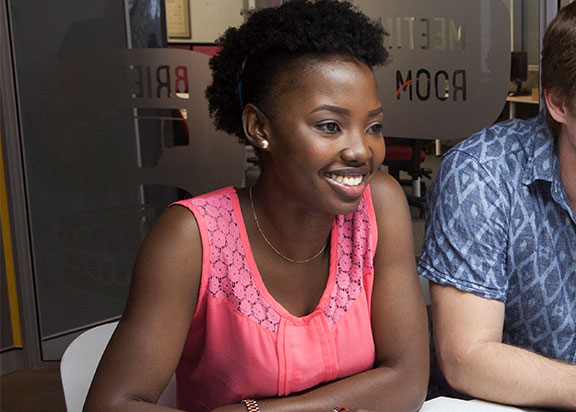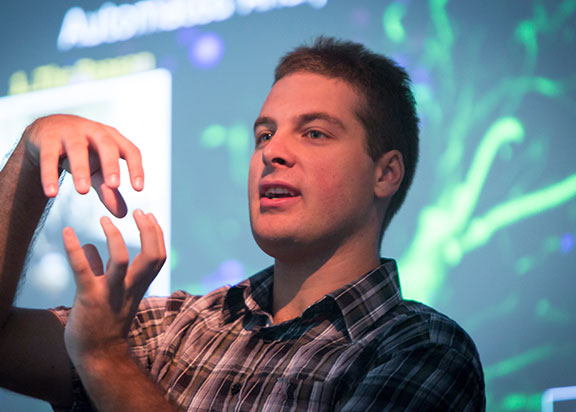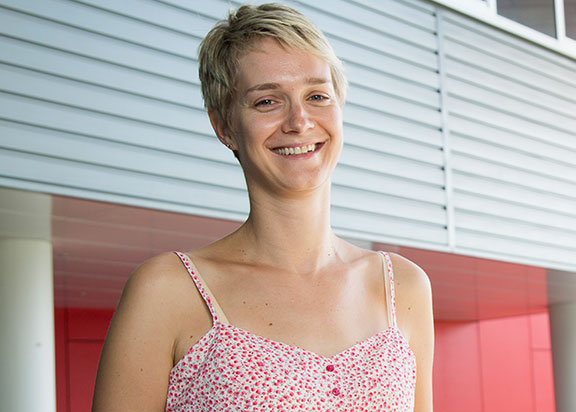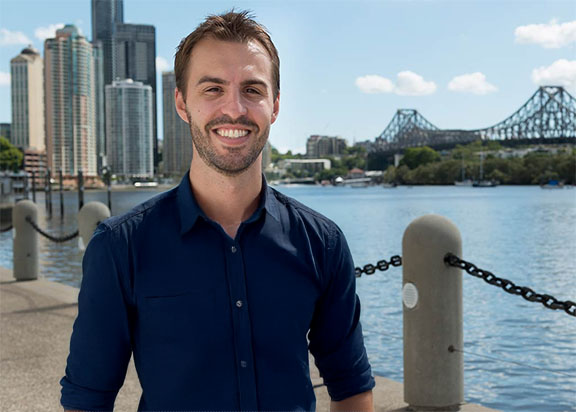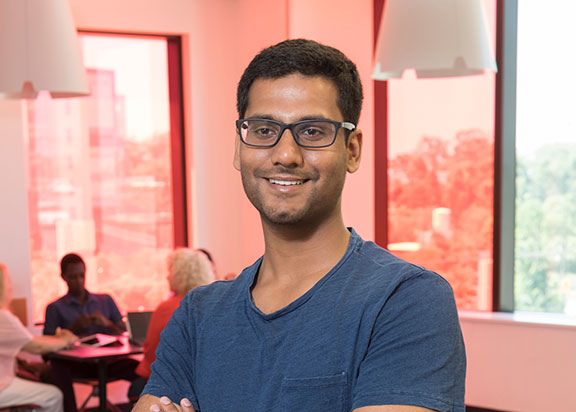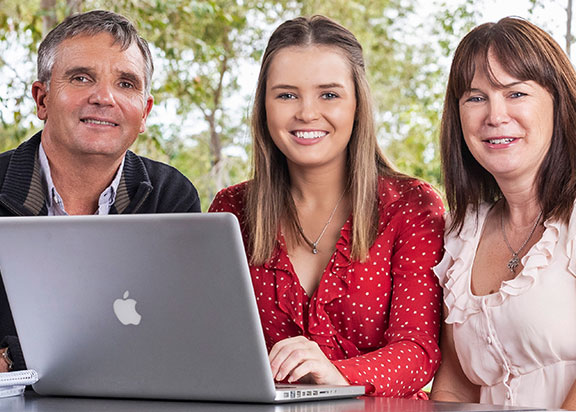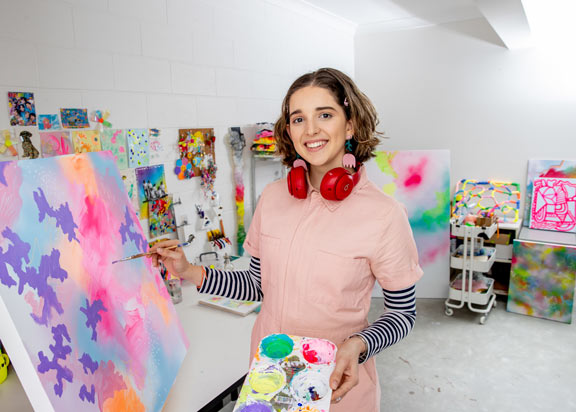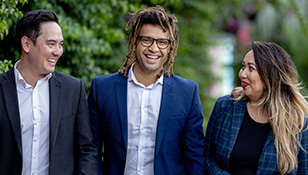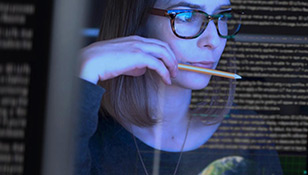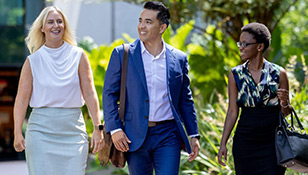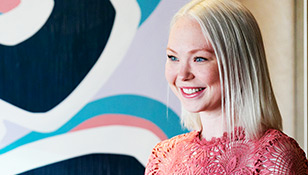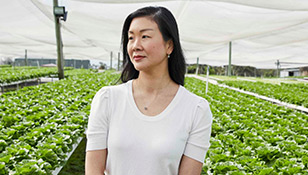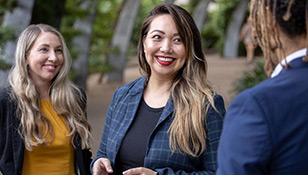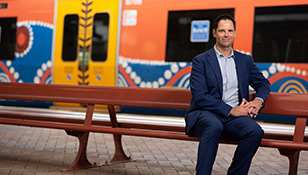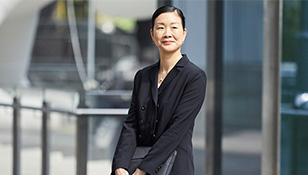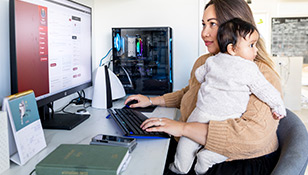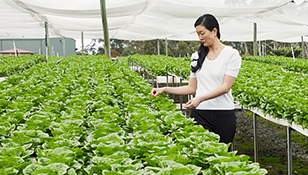Doing it for the kids
You might not think that babies and study are compatible, but for new mum Rachell Hansen, her children are her ‘why’. Six weeks after my second baby was born, I started my MBA with Griffith, and I have loved every minute. It’s important for me that my kids know that I am doing something to protect their future and that of other generations
she shares.
It’s important for me that my kids know that I am doing something to protect their future and that of other generations
With this purpose in mind, Rachell has been able to study a range of future-focussed subjects, including Leading for Sustainable People Outcomes, Sustainability and Systems Thinking, Innovation for Impact and more – all designed to lay the foundations for better leaders, in a better world.
It just makes cents
The business case for sustainable leadership is also strong. A recent study by IBM’s Institute for Business Value found a growing interest from both consumers and employees to support more sustainable organisations. Of the respondents who changed jobs in the past year, over a third moved to organisations they felt had stronger environmentally sustainable business practices. The study also showed that around half of the surveyed shoppers paid a premium (on average 59% more) for products branded as sustainable or responsible.
The desire for corporate target-setting is accelerating as socially conscious consumers demand action. The UN’s Global Compact reporting framework reiterates this. There are several powerful drivers of non-financial reporting that are pushing companies to act responsibly and report on their actions: Mainstream investors are considering environmental, social and governance information in their strategies
the UN shares. Non-financial information is informing the decisions of consumers, local communities and civil society organizations that are all expecting greater transparency from business. Once only a voluntary activity, there is a trend towards mandatory non-financial reporting.
The bottom line is that to retain talent and deliver a viable end-product, sustainable leadership will be key.
Future-proof your position
If you want to position yourself to both leave – and lead – a positive legacy, Griffith’s Masters of Business Administration is the global leader in how to get there.
Placing first in Corporate Knights’ Better World MBA ranking, for the fifth consecutive year, the Griffith MBA is recognised as offering sustainable, responsible business education.
And it’s these values that student Rachell Hansen keeps returning to. What really intrigued me about Griffith’s MBA was that it was focusing on responsible leadership and a lot of the core principals of the program really aligned to my values. I loved that it was focusing on the sustainable development goals, that issues like climate change and sustainability were in the core of what we were learning. It just makes you feel like you’re not just doing an MBA, you’re doing a degree that has purpose, that’s values driven, I found that really unique.
I feel like the career path that I’m pursuing at the moment is really driven by sustainability and taking action in that space. We need to really be thinking about how we are going to sustain a future and how we are going to operate differently and like the air we breathe, the water we drink, the animals, the biodiversity – those are the kind of things we also really have front of mind.
Scholarships
We offer a range of scholarships and awards to support international students studying our undergraduate, postgraduate, research and pathway programs.

Scholarships
We offer hundreds of scholarships, providing financial support to a wider range of students.

Scholarships
We offer hundreds of scholarships, providing financial support to a wider range of students.

